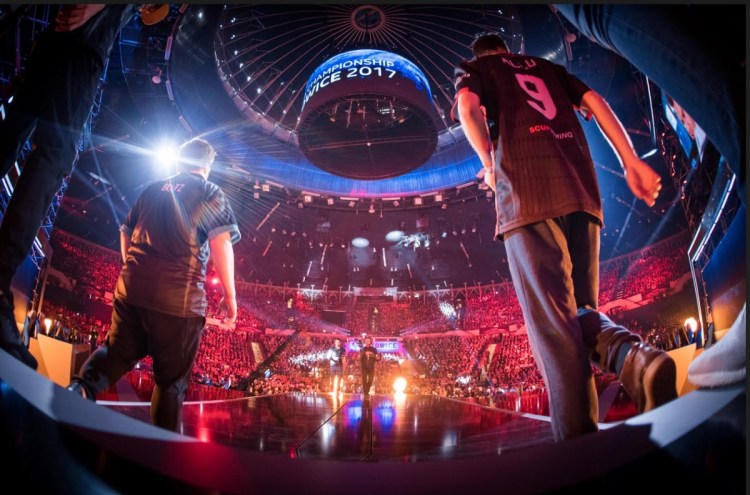I’ve been bouncing this idea about the Leisure Economy, where we all get paid to play games, off everyone I meet these days. With good reason. It’s one of the major ideas we’ll explore at the GamesBeat 2017 event on October 5 and October 6 at Fort Mason in San Francisco. I even bounced it off a fellow who came to a talk about pitching venture capitalists that I moderated on Wednesday night. I’ll tell you more about what he said in a moment.
It seems like a ridiculous idea, until you stop and think about it. I have been paid to play games for 21 years as a game journalist and reviewer. If I can do it, why can’t other people? I sense that many of the leaders of this industry are beginning to take this idea very seriously, if they haven’t already been thinking about it for years.
We’ll have a panel on the topic at GamesBeat 2017, with speakers including Jon “Neverdie” Jacobs, CEO of Neverdie Studios; Gio Hunt, executive vice president of operations at Blizzard Entertainment; and Hilmar Veigar Pétursson, CEO of CCP Games. They represent constituencies that are already getting paid to play games.
Neverdie talked about this earlier this summer at the Gamelab event in Spain. He has a wacky history as a true believer in this idea going back years. He invested $100,000 in real money in a nightclub in the Entropia online game world in 2005. People thought he was nuts, but he sold Club Neverdie for $635,000 in 2010. These days, he is worried that artificial intelligence will wipe out a lot of jobs. What shall we do to replace those jobs?
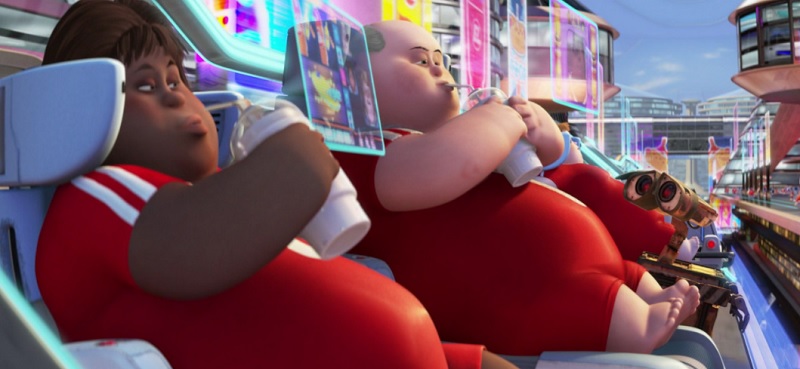
Above: WALL-E’s depiction of humans in the future.
But here’s a thought that we both share. What if we don’t have to work? What if we just play? And we get paid to play? We can become men and women of leisure, like the humans in Pixar’s Wall-E movie. Again, that’s a funny or frightening thought. But why not? Esports. Livestreaming. Influencers. User-generated content. Blockchain miners. That’s all part of what we can call the Leisure Economy, or the Play Economy.
Large numbers of young people get it. They can make millions amassing audiences as YouTube influencers or sell a ton of merchandise through their livestreaming accounts and get kickbacks. They can drop out of college and become pros at Destiny, League of Legends, Dota 2, or Overwatch. They are creating jobs that didn’t exist a generation ago.
Owen Mahoney, CEO of Nexon, told me that this has happened throughout history. He said, “If you are in the buggy-whip business, your job is gone. But people go on to get a job fixing cars.”
I can hear people laughing about getting paid to play games. But I’ve had serious conversations about this with Jen-Hsun Huang, CEO of Nvidia; Tim Sweeney, CEO of Epic Games; Greg Richardson, CEO of Team Dignitas; Scott O’Neil, CEO of the Philadelphia 76ers NBA basketball team; Ron Coughlin, president of HP’s global PC business; and John Smedley, head of the San Diego game studio at Amazon.
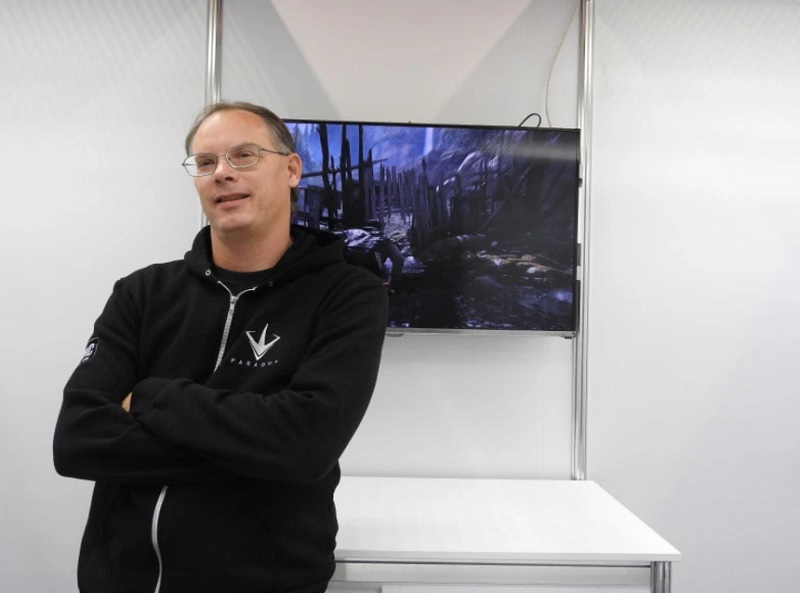
Above: Tim Sweeney, CEO of Epic Games, at Gamescom 2017.
“People have been paid to play games since the Roman colosseums, fighting off the lions,” said O’Neil at the 76ers, which owns Team Dignitas, a pro esports team. “Now, what we see more than anything is a democratization of that and the opportunity that provides.”
Huang at Nvidia said, “Gaming used to be about playing games. But now there’s a whole gaming market, a gaming culture. People play games seriously. People host tournaments. People watch other people play and listen to broadcasters talking about it. The kind of entire ecosystem we see around other sports and forms of entertainment has formed around games as well.”
Maybe we could get a basic income for it. Facebook can serve us ads, and we would all make money for Facebook. If we do our job getting people to be engaged in Facebook, and Facebook makes money from the ads, maybe they can share some of that with us?
This leisure economy could surface in many ways. Think of self-driving cars. Intel estimates that in the next 20 years, we will develop a passenger economy. It will be a $7 trillion industry to provide services to people in cars who are no longer driving, according to Strategy Analytics. We know that those people will have more leisure time. What do they do with leisure time now? They use a smartphone. And on a smartphone, half of all of our usage time is playing games. 80 percent of the revenue is games. So in the car, in the passenger economy, we could expect that half the time will be spent playing games. That’s a huge bump in game time. And it will contribute to a leisure economy.
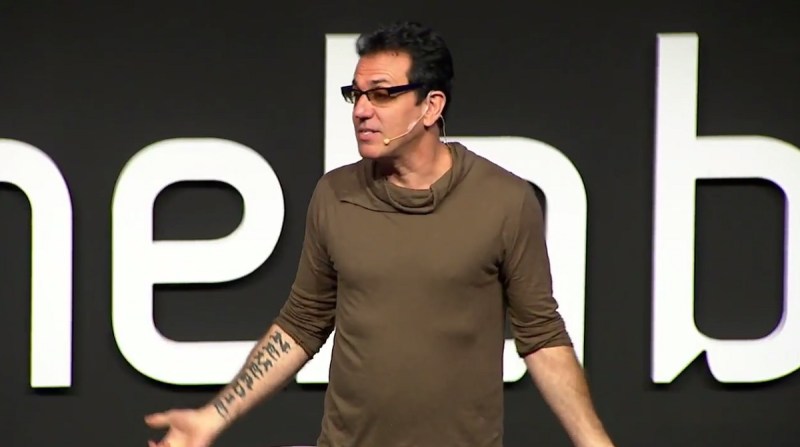
Above: Jon “Neverdie” Jacobs wants you to take your avatars from one game to another.
It isn’t all so far off in the future. Razer has a head start on paying rewards to people for playing games. It created its zVault wallet and zGold currency to reward players by letting them buy Razer merchandise. But Tim Sweeney, CEO of Epic Games, doesn’t want any single company to own the digital economy, or what he calls the Metaverse, named after Neal Stephenson’s Snow Crash novel. He wants the Metaverse to be open, without a centralized authority. Kind of like blockchain is today.
Sweeney said, “If you look at why people are paid to do things, it’s because they’re creating a good or delivering a service that’s valuable to somebody. There’s just as much potential for that in these virtual environments as there is in the real world. If, by playing a game or doing something in a virtual world, you’re making someone else’s life better, then you can be paid for that. We need to start rethinking the way we structure these large-scale game economies, especially as they get bigger and more complex. They should not simply be a means for the developer to suck money out of the users.”
He noted that Valve has created a vibrant economy with Counter-Strike: Global Offensive and Dota 2, where a lot of people earn a living in those games. In this case, Valve isn’t the only one that makes money. Others who create items can sell them in an open marketplace. Valve collects a prize pull and gives out $25 million in prizes for the best Dota 2 players.
“It should be a bi-directional thing where users participate. Some pay, some sell, some buy, and there’s a real economy,” Sweeney said.
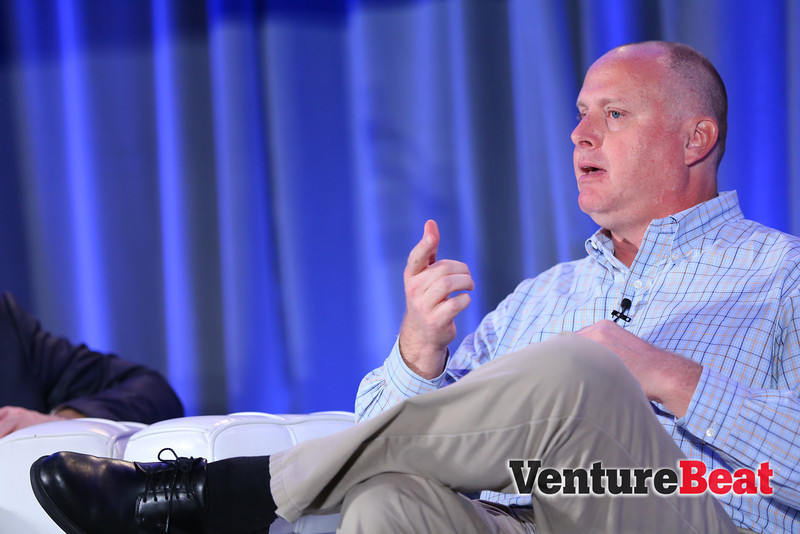
Above: John Smedley, pictured at GamesBeat 2013, is heading a new Amazon game studio in San Diego.
Smedley said that plenty of people his kids’ age are already getting paid to play games.
“I watch a lot of Twitch while I’m working. It’s my background noise. Seeing some of the economy springing up — they have the Cheer economy with Bits,” Smedley said. “Seeing people get tipped, and seeing the amazing rise of Twitch Prime — to me it shows you something. There’s an economy now that didn’t exist a few years ago. That’s what I love about our business.”
He added, “You’re probably aware that Twitch is now selling games. Streamers can share in that directly. It links publishers and developers — or just developers, since a lot of these games are indies — with streamers. To me that’s a direction I see gaining momentum. I think you’ll see the same thing down the line, where these economies are becoming intertwined. When you talk about people being paid to play games, revenue is eventually going to flow multiple ways because of that.”
And here’s another crazy extension of this idea. If you “gamify” work, or make it more fun by turning work into some kind of game, then you enlist even more people in the notion of getting paid to play games.
Are there some pitfalls. Rama Veeraragoo, CEO of a startup called Good Ripple and a man who I met the other night, told me that people who don’t have jobs anymore might not feel useful. If robots and AI take over those jobs, and humans have no work, then what is the meaning of human existence? You can’t live for your work anymore, unless your work is play.
